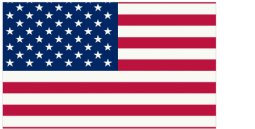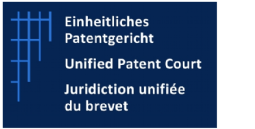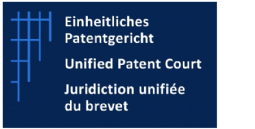This edition features updates from: The United Kingdom (UK), the United States of America (USA) and the Unified Patent Court (UPC).
The Irides Weekly Update is our round-up of patent litigation news highlights from around the world.

UK
High Court strikes out Sandoz’s application for an account of profits under a cross-undertaking.
On 1 September 2025, Michael Tappin KC sitting as a Deputy Judge of the High Court handed down a judgment in favour of Bayer’s application to strike out Sandoz’s claim for an account of profits under a cross-undertaking given by Bayer when obtaining interim injunctions against Sandoz.
The claim stemmed from a series of injunctions Bayer obtained against Sandoz (and other generics) on its patent relating to the use of rivaroxaban for once-daily administration (the Patent). The injunction order made by HHJ Hacon contained a cross-undertaking by Bayer stating that if the order caused loss to the generics, they “should be compensated for that loss” by Bayer. Subsequently, the Patent was found invalid, and the generics were entitled to seek compensation pursuant to the cross-undertaking. Sandoz’s Points of Claim set out that its principle claim was for an account of the profits that Bayer made as a result of the injunctions, as an award of damages would not provide Sandoz with an adequate remedy in the circumstances.
Sandoz’s Points of Claim set out that: (i) the assessment of relief under the cross-undertakings should be on the basis that there had been a contract in which Bayer agreed not to prevent Sandoz from doing that which the injunction prevented Sandoz from doing, and thus that the cross-undertaking permits the Court to make any monetary order that would have been available if the claim under the cross-undertaking was for breach of such contract; and (ii) the circumstances of the case are exceptional such as would justify an account of profits for breach of contract (in line with Attorney General v Blake [2001] 1 AC 268). The exceptional circumstances were stated to be that Bayer obtained the grant of the Patent on the basis of false and misleading claims.
In deciding that the cross-undertaking did not permit Sandoz to advance a claim for an account of profits, Michael Tappin KC stated that the meaning of the cross-undertaking, having regard to its purpose in line with established case law, was clear. Namely, that Bayer undertook to compensate Sandoz for loss Sandoz had suffered as a result of the injunctions, as opposed to disgorge profits Bayer made as a result of the injunctions.
This was notwithstanding a statement made by the Court in Les Laboratoires Servier v Apotex [2008] EWHC 2347 which set out that, where what is found to be a wrongful extension of patent protection results in a benefit to the patent holder which exceeds and outstrips the loss which is occasioned to the generic company whose market entry is delayed by a preliminary injunction, restitutionary damages may be appropriate. This statement was dismissed as being obiter.
Overall, Michael Tappin KC stated that it was clear that under the cross-undertaking given by Bayer, Sandoz’s remedy was limited to compensation for the loss it had suffered as a result of the injunctions. Therefore, the paragraphs of Sandoz’s Points of Claim seeking an account of profits should be struck out under CPR 3.4(2)(a).

USA
Federal Circuit reversed the invalidity of Sonos’ “Zone Scene” patents but affirmed the invalidity of its Direct Control patent.
In Google LLC v Sonos, Inc., the US Court of Appeals for the Federal Circuit reviewed a complex patent dispute involving media playback technologies. The case concerned three Sonos patents: two “Zone Scene” patents (US 10,469,966 and US 10,848,885 – which share the same specification) and one “Direct Control” patent (US 10,779,033).
The District Court had:
- held the Zone Scene patents invalid for lack of written description of the claimed overlapping zone scene functionality;
- held the Zone Scene patents unenforceable due to prosecution laches; and
- granted summary judgment as the Direct Control patent was invalid for obviousness.
On appeal, the Federal Circuit reversed the invalidity and unenforceability findings for the Zone Scene patents but affirmed summary judgment relating to the Direct Control patent.
Regarding the Zone Scene patents, the Court found that by at least 2007 the relevant patent applications adequately disclosed overlapping zone scenes, contrary to the District Court’s finding that the relevant disclosure was added only in 2019. The Appellate Court held that the disclosures which accompanied Figure 3A and Figure 3B of the Zone Scene patents were complementary (i.e. they were to be read together as overlapping zone scenes not as two distinct embodiments describing different zone scenes that do not overlap), and a reasonable fact finder could not conclude otherwise. Google also sought to challenge Sonos’ expert evidence on this issue. However, as Google had not adduced its own expert evidence, the Appellate Court held there was no genuine dispute to be had. Therefore, the Appellate Court held that the written description requirement was met.
The decision on the written disclosure also meant that Google failed to show prejudice necessary for prosecution laches. As the written disclosure dated from at least 2007 not 2019, it was publicly available before Google’s alleged investments. The District Court had held that as Google released its first products that practiced the invention in 2015, Google must have begun investing in those products by at least 2015. However, the Appellate Court held that Google had failed to adduce any evidence (e.g. testimony or otherwise) of its alleged investments and so it could not meet its burden of establishing prejudice.
For the Direct Control patent, the Court affirmed that Google’s own YouTube Remote system and related prior art rendered the claims obvious. The court found no genuine dispute of material fact regarding the “remote playback queue” and “device picker” limitations. Therefore, the District Court’s grant of summary judgment that the asserted claims of the Direct Control patent were invalid as obvious was affirmed.
The judgment was reversed in part (Zone Scene patents) and affirmed in part (Direct Control patent), with each party bearing its own costs.

UPC
Cilag’s application for provisional measures against Rivolution dismissed by The Hague Local Division due to lack of urgency.
[UPC_CFI_374/2024]
In Cilag GmbH International & Ethicon LLC v Rivolution GmbH, The Hague Local Division (LD) dismissed Cilag’s application for provisional measures based on EP 3 689 262, a unitary patent concerning surgical staple cartridges.
Cilag sought a preliminary injunction in all UPCA contracting member states against Rivolution, a distributor of cartridges from two Chinese manufacturers, Bluesail and David Medical, which were already the subject of injunctions issued by the Munich Regional Court in 2023 and 2024 based on the parent patent, EP 2 621 360. Cilag argued that Rivolution’s activities, including participation in tenders and a large-scale clinical study, amounted to infringement in Germany and Austria (where sales had taken place) and posed an imminent threat of infringement in other UPC territories.
In relation to jurisdiction and competence, the panel was not convinced by Rivolution’s argument that, in the case of a unitary patent, all UPC divisions are competent to hear a case so the infringement in Germany created jurisdiction and competence for all divisions of the Court, noting that this would make Art. 33.1 UPCA regarding the internal distribution of competences of the UPC effectively meaningless for unitary patents. However, The Hague LD found jurisdiction and competence under Art. 33.1 UPCA and Art. 7(1) Brussels Regulation based on Rivolution’s cross-border activities, including workshops in the Netherlands and its English-language website, which did not include a disclaimer limiting sales to certain countries.
Ultimately Cilag’s application was dismissed due to lack of urgency. The Court held that Cilag had unreasonably delayed bringing the proceedings after learning that Rivolution was seeking participants for the clinical study in November 2024, waiting until late April 2025 to file the application. The Court rejected Cilag’s arguments that urgency revived due to expanded study scope, tender outcomes, or market erosion, finding these developments foreseeable and insufficiently substantiated.
The Court also dismissed applications to submit further evidence post-hearing and confirmed an earlier preliminary confidentiality order. Cilag was ordered to pay EUR 80,000 in interim costs to Rivolution.
Cilag was successful in a parallel preliminary injunction application against Rivolution in the Munich LD based on a separate patent concerning medical staplers. The grounds for that decision have not yet been published.

UPC
Centripetal’s request for discretionary review to submit further pleadings in its infringement case against Keysight denied by the Court of Appeal
[UPC_CoA_805/2025]
In Centripetal v Keysight, the Court of Appeal considered a discretionary review application by Centripetal under r. 220.3 RoP. This followed the Mannheim LD’s refusal to allow Centripetal to file further written pleadings in its infringement case under r. 36 RoP to allege the newly released “AI Stack” feature of Keysight’s software infringed Centripetal’s patent.
AI Stack was released after the deadline for regular submissions and Centripetal argued that the refusal to allow additional pleadings was manifestly wrong and would deprive it of an effective judicial remedy in relation to “AI Stack”. It also sought clarification on whether parties in UPC infringement actions should be allowed to address newly released infringing products post-deadline.
The Court of Appeal found the request admissible but ultimately denied it. It held that the Mannheim LD had properly exercised its discretion considering the advanced stage of proceedings and the timing of Centripetal’s request—four months after the release of AI Stack and five weeks after filing its final submissions in the case. The Court emphasised the importance of expeditious proceedings and noted that Centripetal retained the right to bring separate actions for newly released products, thus avoiding res judicata concerns.
The Court concluded that the impugned order did not violate principles of proportionality, flexibility or fairness, and that Centripetal had failed to demonstrate that the impugned order raised a fundamental question of law and that its review was necessary to ensure a consistent application and interpretation of the RoP.

/Passle/5f3d6e345354880e28b1fb63/MediaLibrary/Images/2025-09-29-13-48-10-128-68da8e1af6347a2c4b96de4e.png)
/Passle/5f3d6e345354880e28b1fb63/MediaLibrary/Images/2025-07-10-13-52-35-189-686fc5a39f23a993118ba1a0.png)
/Passle/5f3d6e345354880e28b1fb63/SearchServiceImages/2026-02-20-09-54-03-745-69982f3bff07facd13d88f69.jpg)
/Passle/5f3d6e345354880e28b1fb63/SearchServiceImages/2026-02-18-09-25-14-317-6995857a406a38553e720e5d.jpg)